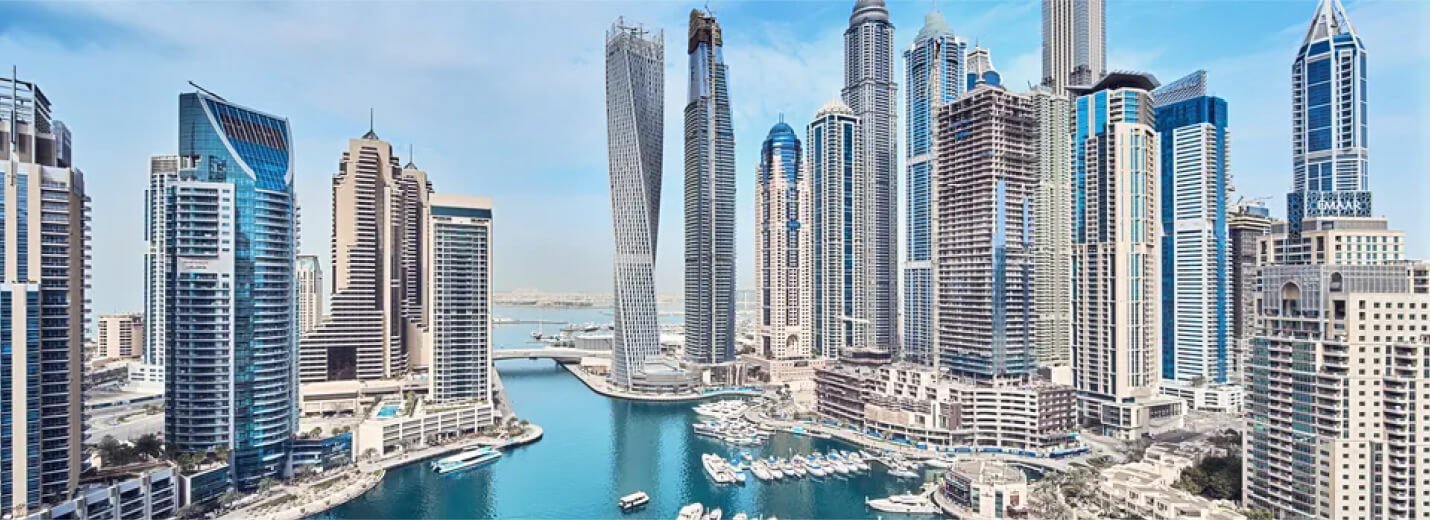
International investors searching to buy assets in Dubai have available financing options. Many UAE banks provide loan loans for non-citizens, with some requirements. If the property’s cost is below AED five million, non-resident customers can typically borrow up to 75% of the belonging’s fee. Dubai’s real domain commercial center has extended drawn in worldwide purchasers, and 2024 presents every ability valuable open door and contemplation for the ones thinking about entering the market.
Here’s a guide to get you begun:
Benefits of investment: –
Favorable tax environment: The UAE boasts a tax-loose environment for property ownership and no income tax on rental profits, making it a profitable funding option.
Strategic Area: Dubai’s strategic location as an international hub for commercial enterprise and tourism gives robust funding capability due to its diversified economic system and developing population.
Safe and strong surroundings: Dubai enjoys a stable political environment and a high standard of living, making it an attractive area for both living and funding.
Exploring Dubai’s Best Neighborhoods
The Top 10 Places to Live in Dubai
- Downtown Dubai.
- Dubai Marina.
- Jumeirah Beach Residence.
- Arabian ranches
- Palm Jumeirah.
- Emirates Hills.
- Jumeirah Lakes Towers (JLT)
- Business bay.
Here’s a guide at the felony necessities and capability returns for global buyers making an investment in Dubai’s belongings market:
Legal Requirements for International Buyers
1. Property Ownership:
A. Dubai lets in foreign nationals to personal freehold homes in special regions referred to as “freehold zones.”
B. Non-UAE nationals can own the property outright, with no restrictions on their nationality or residency status.
C. Buyer’s ought to obtain a UAE residence visa to complete the asset buy
2. Registration and Documentation:
a. The asset purchase should be registered with the Dubai Land Department (DLD), which is the professional real estate authority.
b. Required files usually consist of a valid passport, proof of income or funds, and a no-objection certificate (NOC) from the developer (for off-plan purchases).
c. Buyer’s ought to pay a registration rate, normally 4% of the asset fee, to finish the transaction.
3. Mortgage and Financing:
➢ International consumers can acquire mortgages from local and worldwide banks operating in Dubai.
➢ Mortgage standards encompass a minimal down price (commonly 25-30%), evidence of earnings, and credit score records.
Buyers can also explore options like buy-to-permit mortgages, which might be tailor-made for investment houses.
Potential Returns:
1. Rental Yields:
I. Dubai’s condo market is taken into consideration robust, with common condominium yields starting from five% to 8% for residential homes.
II. Yields can range depending on the asset type, region, and facilities, with better-cease properties usually providing lower yields.
III. Properties in well-mounted areas and people with strong tenant demand generally tend to generate better apartment returns.
2. Capital Appreciation:
1. The Dubai actual property marketplace has historically proven intervals of capital growth, in particular in high and properly-developed areas.
2. Over the past decade, sure places have recorded double-digit annual appreciation, even though the marketplace has additionally experienced softening intervals.
3. Factors like infrastructure tendencies, new rules, and the emirate’s financial increase can have an effect on capital appreciation.
3.Tax Benefits:
– Dubai is thought of for its favorable tax surroundings, with no non-public profits tax, corporate tax, or capital gains tax on real estate transactions.
– This could make Dubai an appealing destination for worldwide investors looking for tax-efficient investments.
It’s critical for international shoppers to conduct thorough due diligence, paintings with reliable real estate agents and legal experts, and live knowledgeable about the modern market developments and regulations whilst investing in Dubai’s belongings market.